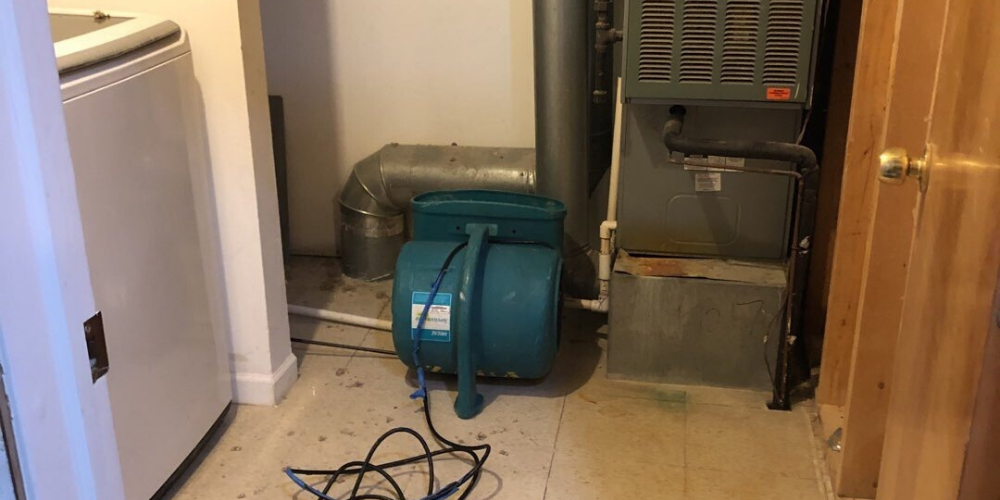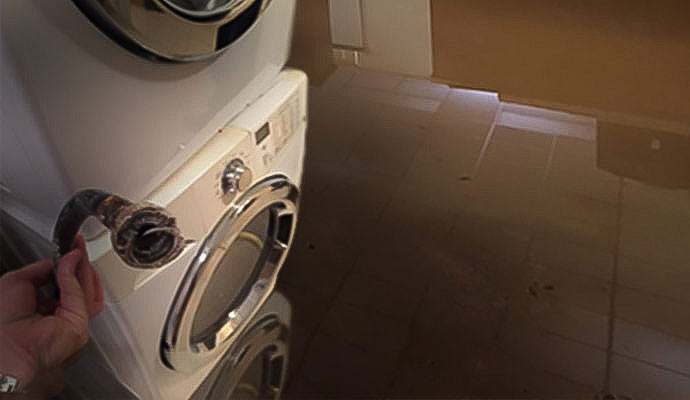Stand Strong Against Washer Leaks - Flood Control Tips
Leading plumbing expertise for emergencies.Everyone has his or her own idea with regards to My Washing Machine Flooded the House .

Exactly how you hand those priceless mins after your washing equipment leaks and also floodings can affect exactly how quick your residential or commercial property gets brought back. Recognizing what you need to do and also who to call can conserve you from considerable damages. It will additionally aid assist you in applying for house owners insurance policy protection. Take a look at these leading ideas below:.
Switch off the Power.
Turn of the breaker where the cleaning machine is. It is vital to make certain the washer is off. Water is a conductor, and doing this step ensures nobody deals with electrocution. Besides, you should not utilize your washing machine until a specialist repairman has checked it.
Take Out the Standing Water.
As you wait for the plumber or repair service service technician to find, you need to handle the flooding. If your washing machine is in the cellar with substantial flooding, you need a completely submersible pump to get the water. You can rent or obtain this. Nonetheless, if it occurs in the middle of the evening, the old bucket technique will also function. Usage numerous jugs to manually dispose out the water. It would certainly be best if you did this right away, as the longer the water remains, the much more considerable the damage.
Call the Pros.
If you think the issue is with your water line, you need to call a certified plumber. Nonetheless, if you are uncertain, call a washer repairman for a quick analysis. This person can tell you ideal what the problem is. It could be a problem with the machine itself or the pipelines attaching to the machine.
File the Damage.
Prior to tidying up this emergency flooding situation, you must document everything. Make note, images, as well as video clips. It would be best if you had every one of this as proof to support your insurance policy cases. After that you can call your property owner's insurance coverage carrier to examine what various other needs they require to refine your demand.
Vacuum Any Staying Water.
Using a wet/dry vacuum, eliminate the rest of the water, and also draw it from porous products like baseboards, drywall, flooring, and carpeting.
Turn Off Water Supply.
You need to shut off the water supply of the maker. Whether it overflows for unknown reasons, breaks down in the reduced pipes, or tears the main hose pipe, you will certainly be handling significant amounts of water. If the local supply line to the washing machine does not shut it off, you must shut off the primary water shutoff outside your house.
Dry the Area as High As Possible.
After securing the standing water, get sponges or old towels to draw out as much water from the floor or rug. Maintain the home windows open up to flow the air. You might also utilize electrical followers to speed up the drying out process. Keep in mind, water will certainly cause mildew as well as mold and mildew growth which is unsafe to your health and wellness. If you really feel that the circumstance is too much to take care of, you can also look for water removal solutions from a restoration firm. Your insurance coverage case might also aid pay for this service, so simply ask.
Remember, a busted washer with dripping pipes will lead to catastrophic damage as a result of the huge amounts of water it can unload. Therefore, it would certainly assist to have your machine as well as water lines examined yearly. You can look for help from a respectable plumber to change your supply line pipes. Doing assessments stops difficult malfunctions and also pricey breakdowns.
MY WASHING MACHINE FLOODED THE HOUSE! WHAT SHOULD I DO?
STOP THE WATER
First things first, turn off the water. You’ll want to stop the flooding at its source, which is the washing machine’s water supply. Once you ensure the water is turned off, unplug your washing machine.
If there is standing water around the electrical plug, you may want to take an extra precautionary step and turn off the power before unplugging your washer to prevent electrical shock.
CLEAN UP WHAT YOU CAN
Next, you’ll want to clean up as much water as you can. Depending on how much your washer flooded this may take a lot of towels, but it is very important in ensuring you don’t have lasting washing machine water damage. For a large amount of water, using a wet vacuum and large fans for drying will be most effective.
EMPTY THE MACHINE
Once you’ve cleaned up the majority of the water from the overflow, you’ll want to remove any items from your washer, along with any leftover water that is still in your machine. This will give a you or a repairman the ability to analyze your machine and determine the cause of the washing machine overflow.
CALL IN THE EXPERTS
Depending on how washing machine-savvy you are, you may be able to determine the cause of the overflow yourself—maybe you notice a faulty hose, like we discussed earlier. But if you aren’t able to determine why your washing machine flooded, you’ll want to get someone in there who can.
FIX ANY WATER DAMAGE
Effects of water damage after a washing machine flood may include damage to surrounding areas, such as your floors, walls, or other close-by machines. And while visual damages might be the most noticeable, you’ll want to pay attention to smell as well. A “wet-dog” type of smell is normal at first and can usually be remedied by opening nearby windows to air-out the area.
However, if the smell lingers for more than three days, that’s an indication there is still water somewhere. Even after thoroughly drying the impacted area, water may be hiding in your floors or in the sheetrock in your walls, which can indicate mold. Call in a mold remediation professional to inspect your property for hidden moisture.
WHAT CAUSES WASHING MACHINES TO FLOOD?
Too much laundry soap. When it comes to how much soap you use, be sure to not exceed the recommended amount. Using too much soap can cause build up and clog your washing machine leading to overflow. Too many clothes. If you overload your washer with too many clothes, you may notice your washing machine becoming unbalanced—and making awful noises, like a spaceship getting ready to take off. This is an indication that your washer is out of alignment which can lead to a flood. Too weak or old of a hose—or other faulty washing machine parts. Washing machines rely on hoses to transport water to and from the washing machine. If one of the hoses becomes weak, faulty, or develops a crack, say hello to a flood. You’ll want to ensure your hoses are in good shape and properly connected so no water can leak out. It’s also important to check the washing machine draining mechanisms, as well as the door latches and seals. Making sure everything is in tip-top shape and proper working order will help keep your washer from flooding. https://www.servicemasterbyzaba.com/blog/washing-machine-flooded/

I stumbled upon that page on My Washing Machine Flooded the House when doing a lookup on the web. Don't hesitate to take the opportunity to promote this blog entry if you appreciated it. Thanks for going through it.
Get answers now!